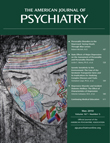Association of Mu-Opioid Receptor Variants and Response to Citalopram Treatment in Major Depressive Disorder
Abstract
Objective
Because previous preclinical and clinical studies have implicated the endogenous opioid system in major depression and in the neurochemical action of antidepressants, the authors examined how DNA variation in the μ-opioid receptor gene may influence population variation in response to citalopram treatment.
Method
A total of 1,953 individuals from the Sequenced Treatment Alternatives to Relieve Depression (STAR*D) study were treated with citalopram and genotyped for 53 single nucleotide polymorphisms (SNPs) in a 100-kb region of the OPRM1 gene. The sample consisted of Non-Hispanic Caucasians, Hispanic Caucasians, and African Americans. Population stratification was corrected using 119 ancestry informative markers and principal components analysis. Markers were tested for association with phenotypes for general and specific citalopram response as well as remission.
Results
Association between one SNP and specific citalopram response was observed. After Bonferroni correction, the strongest finding was the association between the rs540825 SNP and specific response. The rs540825 polymorphism is a nonsynonymous SNP in the final exon of the μ-opioid receptor-1X isoform of the OPRM1 gene, resulting in a histidine to glutamine change in the intracellular domain of the receptor. When Hispanic and Non-Hispanic Caucasians were analyzed separately, similar results in the population-corrected analyses were detected.
Conclusions
These results suggest that rates of response to antidepressants and consequent remission from major depressive disorder are influenced by variation in the μ-opioid receptor gene as a result of either an effect on placebo response or true pharmacologic response.



